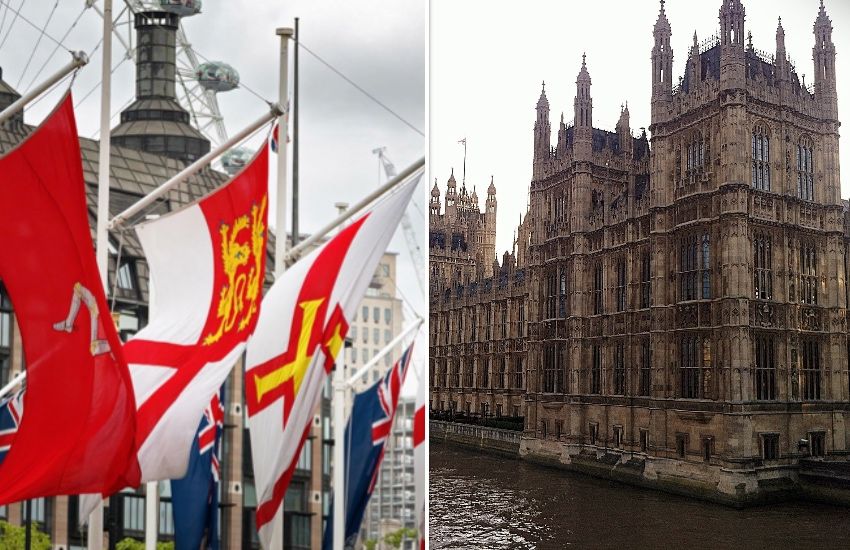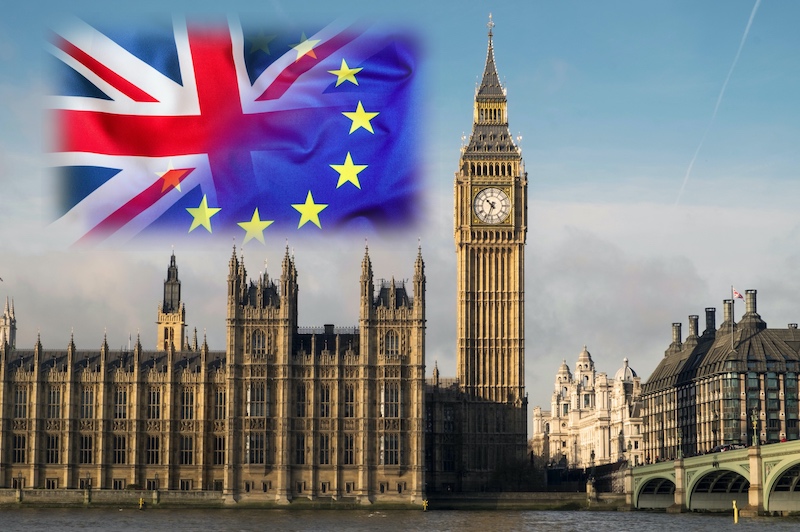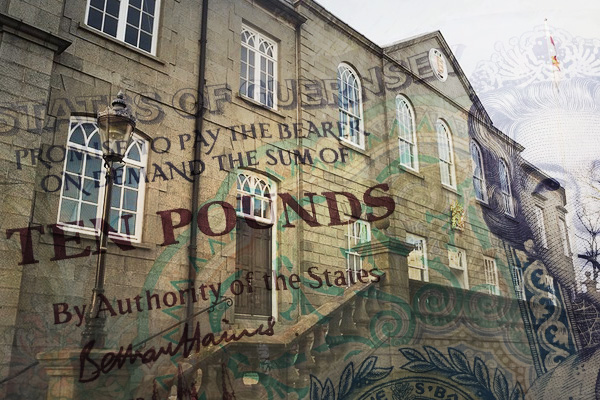


The impact of Brexit fishing legislation and the fallout over a public register of beneficial ownership feature in a new briefing document on the Crown Dependencies for Members of Parliament.
Senior deputies from Guernsey and Jersey are quoted in the document, emphasising the unique constitutional relationship, and negotiating patterns between the United Kingdom and the Crown’s oldest possessions.
Above all, the paper demonstrates a relationship which requires notification, dialogue and above all, consent.
But it’s shown that those principles can fall victim to misunderstanding and disagreement on both sides of the Channel.

Pictured: News of the UK's vote to leave the European Union came 7-years ago.
From the outset, the Crown Dependencies were briefed on Brexit developments four times a year, initially by the Minister for Exiting the European Union and then by senior government officials following the referendum in June 2016.
Ordinarily, the UK cannot legislate on behalf of the islands to preserve their fiscal, political, and legal autonomy. However, a Permissive Extent Clause can be inserted into government bills if it’s deemed essential that the law should be extended to the islands – but this must be registered in each of the Crown Dependencies’ courts.
The paper states that the “unusual” move was taken to add a PEC to the post-EU Fisheries Act “despite explicit opposition from Jersey and Guernsey”.
Giving evidence to the Commons Justice Committee in September 2021, Deputy Jonathan Le Tocq, a former Chief Minister of Guernsey, said the process had ‘started in the right way, in the sense that we were consulted months before and asked if we wanted to be included in a PEC’. We thought about it and said: ‘no, we can legislate domestically for that as and when it comes to it, and we will consider the issues at stake each time and produce appropriate legislation where necessary’.
“That was all we heard for many months, until a few weeks before the amendment [to the Fisheries Bill] was put in. In terms of process, that left us with a bad feeling of why ask us if the answer is ‘we’re going to do this anyway’?
“On engagement, we felt the reasons given were unreasonable... and it did not seem to us to be, in this particular instance, such an important, crucial and risky area that required that sort of heavyhandedness. We made that clear.”

Pictured: Guernsey's External Relations Minister, Jonathan Le Tocq.
Deputy Le Tocq suggested to British officials that the island’s respective courts and legislatures would be unlikely to accept forced legislation from the UK in that instance, which would render it null and void.
Jersey’s Minister for External Affairs, Ian Gorst, agreed: “You can see if you have already got to a confrontational situation and Her Majesty signs an order in council, and it is dispatched to a territory in Jersey, you are in a situation that you never want to get into.”
The UK could also legislate on behalf of the Crown Dependencies in extraordinary circumstances where good governance, law and order or widespread corruption is called into question. This arose on the issue of a beneficial ownership register – a list of assets or companies, the benefits of which are enjoyed by someone.
The UK has publicly available registers of beneficial ownership publicly available, but the Channel Islands do not.
“In April 2014, the then Prime Minister David Cameron wrote to the Crown Dependencies and British Overseas Territories encouraging them to follow the UK’s example,” the paper states.
“A cross-party group of MPs proposed a similar amendment requiring public registers with details of anyone owning more than 25% of a company based in a Crown Dependency by 2020. The MPs cited the 1973 Royal Commission on ‘good government’, although the Crown Dependencies argued that their systems for combating money laundering already represented this.
“In response, the Chief Ministers of Guernsey, Jersey and the Isle of Man argued that Westminster could not impose legislation without consent. Lyndon Trott, Guernsey’s then Deputy Chief Minister, added that the imposition of a public register would ‘seriously undermine our longstanding and close relationship with the UK and the crown’.”
The UK Government ultimately withdrew the bill, and the Crown Dependencies later committed to implement public registers in line with international norms, but at an unspecified date.
The debacle led to Guernsey’s States introducing a law change require that any Act of Parliament extended to the island must be approved by politicians.

Pictured: The States of Guernsey now must formally approval extended legislation from the UK following the beneficial ownership debacle.
The paper also details the party-political systems in the Crown Dependencies, but it notes each island has a “strong tradition of non-aligned” candidates. It says Guernsey has three parties: “the Alliance Party Guernsey, the Guernsey Party, and the Guernsey Partnership of Independents”.
However, two of these are no longer active. The Alliance Party disbanded after failing to win a single seat at the 2020 election.
Six Guernsey Party candidates were elected, but the party has all but collapsed since with just two members left and various resignations in behind-the-scenes roles. Members were unable to hold a party line on a consumption tax.
And while the Partnership managed to win 11 seats, with leader Deputy Gavin St Pier topping the poll, it also disbanded less than a year after the election.
You can read the full paper HERE.
Comments
Comments on this story express the views of the commentator only, not Bailiwick Publishing. We are unable to guarantee the accuracy of any of those comments.